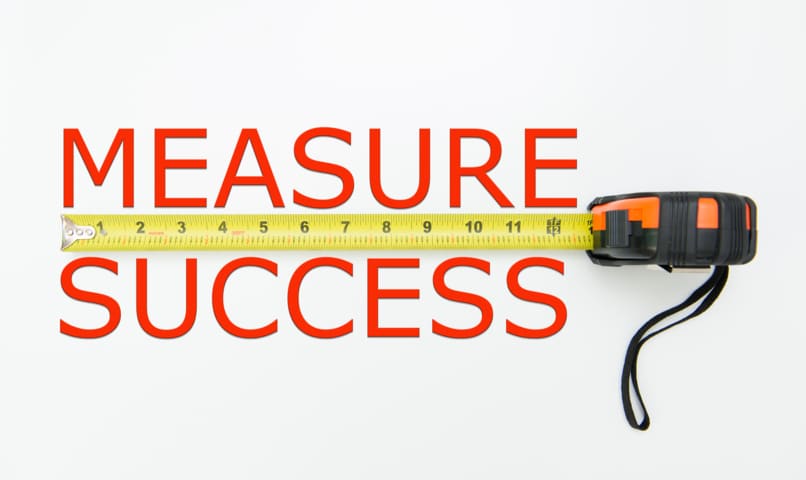Hiring challenges are common, especially for companies that are constantly striving to stay ahead of the game and create a strong sales team. Top-performing salespeople can help a company increase revenue, build brand loyalty, and gain a significant advantage over its competitors.
However, hiring top-performing salespeople is not an easy feat. It requires a significant amount of time, effort, and resources to find candidates who possess the necessary skills and experience to drive sales growth. Additionally, competition for these individuals is fierce, as many companies are vying for their services.
This is where sales recruiters come in. They specialize in finding and attracting top sales talent, allowing companies to focus on their core competencies while leaving the hiring process to the experts. By working with sales recruiters, companies can save time and money, reduce turnover rates, and ultimately achieve greater success in their sales efforts.
In this article, we’ll explore the benefits of working with sales recruiters and how they can help solve some of the most common hiring challenges faced by businesses today. Whether you’re a small startup or a large corporation, finding the right sales talent is crucial to your success, and sales recruiters can make all the difference.
What Are Hiring Challenges That Sales Organizations Typically Face?
Sales organizations face a unique set of challenges when it comes to recruiting and hiring top talent. These challenges can range from high turnover rates to difficulty finding qualified candidates and lengthy hiring processes. In this section, we will discuss these common hiring challenges that sales organizations face and their impact on a company’s bottom line and overall success.
High Turnover Rates
One of the most significant hiring challenges faced by sales organizations is high turnover rates. Many sales positions are highly competitive and demand a lot from employees, which can lead to burnout and job dissatisfaction. This, coupled with the pressure to hit sales targets and quotas, can contribute to a high rate of turnover within the sales team.
The impact of high turnover rates can be detrimental to a company’s bottom line and overall success. It can result in lost productivity, missed sales opportunities, and increased expenses related to recruitment and training. Additionally, high turnover rates can damage morale and lead to instability within the sales team, making it challenging to establish a cohesive and successful sales strategy.
Difficulty Finding Qualified Candidates
Another significant challenge faced by sales organizations is difficulty finding qualified candidates. Sales roles require a unique set of skills, including exceptional communication, negotiation, and relationship-building abilities, as well as knowledge of the products or services being sold. Finding candidates with the right combination of skills, experience, and personality traits can be difficult, especially in a competitive job market.
The impact of difficulty finding qualified candidates can be devastating for a company’s bottom line and overall success. It can lead to delays in filling open positions, missed sales opportunities, and increased expenses associated with recruitment. Moreover, hiring unqualified or inexperienced candidates can result in poor performance, which can further exacerbate the issue of high turnover rates.
Lengthy Hiring Processes
A lengthy hiring process is yet another hiring challenge faced by sales organizations. The process of recruiting and hiring new sales talent can be time-consuming, with interviews, background checks, and other pre-employment screenings taking a considerable amount of time. This can delay the hiring of new employees and be a drain on resources, reducing the efficiency of the sales team and potentially leading to missed business opportunities.
The impact of lengthy hiring processes can be significant for a company’s bottom line and overall success. It can lead to lost productivity, missed sales opportunities, and increased expenses related to recruitment and administration. Additionally, a long hiring process can damage morale and lead to frustration among candidates, potentially deterring top talent from considering a position with the company.

How Can Sales Recruiters Speed Up the Process?
Now that we’ve covered the common hiring challenges faced by sales organizations let’s take a look at how sales recruiters can help speed up the process.
Access to a Larger Pool of Qualified Candidates
Sales recruiters have access to a vast pool of qualified sales candidates, including both active and passive job seekers. They source candidates from a variety of channels, including job boards, social networking sites, industry events, and their own networks. This means that they can identify candidates who possess the necessary skills and experience, as well as the personality traits that fit the company culture. By leveraging their expertise and resources, sales recruiters can cast a wider net and provide access to a larger pool of qualified candidates.
Tailored Talent Searches
Sales recruiters tailor their search criteria to meet the specific needs of their clients. They work closely with hiring managers to understand the role, the company culture, and the ideal candidate profile. This allows them to identify candidates who not only possess the required skills and experience but also fit the company culture and values. By conducting targeted talent searches, sales recruiters can ensure that they are presenting only the most qualified and suitable candidates to their clients.
Faster Hiring Timelines
Sales recruiters know that time is of the essence when it comes to hiring top sales talent. They work quickly to identify and present qualified candidates to their clients. They also take care of administrative tasks related to recruitment, such as resume screening, initial interviews, and reference checks, which can save companies valuable time and enable them to focus more on their core business activities. By streamlining the hiring process, sales recruiters can help companies fill open positions faster and reduce the impact of high turnover rates and prolonged vacancy periods.
The Sales Recruiting Process
Sales recruitment is a process that requires a lot of time and resources to attract, screen, and hire the best candidates. This process is critical for businesses that rely on sales teams to generate revenue and drive growth. A sales recruiter can simplify the process by leveraging their expertise to identify and attract top talent. In this article, we will outline the typical steps involved in the sales recruiting process and explain how a sales recruiter can enhance the process.
Job Analysis
The first step in the sales recruiting process is to conduct a job analysis. This involves identifying the required skills, experience, and qualifications for the role. Sales recruiters work closely with the hiring team to understand the specific needs of the organization and develop a comprehensive job description. By conducting a thorough job analysis, sales recruiters can identify the essential skills and qualities required for a sales role.
Candidate Sourcing
Once the job analysis is complete, the sales recruiter will begin sourcing candidates. They will leverage their expertise and resources to identify potential candidates through various channels, including job boards, social media platforms, industry events, and personal networks. A sales recruiter can access a more extensive pool of qualified candidates that may not be found through traditional means. They can also use their connections in the industry to reach out to passive candidates who may not actively be seeking a new role.
Candidate Screening
After identifying potential candidates, the sales recruiter will begin screening them to ensure they meet the required criteria. This may involve reviewing resumes, conducting phone interviews, or administering skills tests. The goal is to identify the most qualified candidates and weed out those who do not meet the necessary requirements. Sales recruiters are skilled at screening candidates and have the expertise to identify the most promising candidates.
Interviewing
Once the candidate pool has been narrowed down, the sales recruiter will coordinate interviews between the candidates and the hiring team. Sales recruiters may also provide guidance on interview techniques and questions to help the hiring team identify the best candidate for the role. Sales recruiters can help streamline the interviewing process by scheduling interviews and following up with candidates, allowing the hiring team to focus on selecting the best candidate.
Offer Negotiation
Once a top candidate has been identified, the sales recruiter will assist with offer negotiation. This involves working with the hiring team to develop a competitive offer package and presenting it to the candidate.
The sales recruiter may also assist with background checks and other administrative tasks related to onboarding the new hire. Sales recruiters can help ensure that the offer package is timely and competitive, which is critical in closing the best candidates.

Metrics for Measuring Success
Sales recruiters help companies identify and attract top candidates for their sales roles. However, how can we measure their success? In this section, we will discuss the metrics that can be used to evaluate the success of a sales recruiter, such as time-to-hire, quality of hire, and cost per hire. These metrics can help companies evaluate the effectiveness of their recruiting efforts and make data-driven decisions for future hires.
Time-to-Hire
Time-to-hire is a critical metric in measuring the success of a sales recruiter. It is defined as the time taken from posting the job opening to the acceptance of the job offer by the candidate. The longer it takes to fill a role, the higher the cost of recruitment will be for the organization. A long time-to-hire can also result in missed opportunities as the sales team may not be at full strength. By analyzing time-to-hire, sales recruiters can evaluate their efficiency and effectiveness in identifying and attracting qualified candidates.
Quality of Hire
The quality of hire is another essential metric that can be used to measure the success of a sales recruiter. It is a measure of the overall performance of the new hire over a specific period. A high-quality hire results in increased revenue, productivity, and overall success of the organization. Conversely, a low-quality hire can have negative impacts such as lower productivity, reduced morale, and lost business opportunities. By measuring the quality of hire, sales recruiters can evaluate how well they identified and attracted top talent that aligns with the company’s needs.
Cost Per Hire
Cost per hire measures the total cost incurred by the organization for each new hire. This includes expenses such as recruitment advertising, job fairs, recruiter salaries, and background checks. By analyzing cost per hire, sales recruiters can evaluate the effectiveness of their recruiting efforts. This can help identify areas where costs can be reduced without compromising the quality of the hiring process.
Wrapping It Up
Sales recruiters play a vital role in helping companies identify and attract top talent for their sales roles. Instead of trying to identify the most qualified candidates on their own, they can rely on sales recruiters to leverage their industry connections and expertise in candidate screening.
If you’re looking to hire new salespeople to create your dream sales team, you’ll want to become a client with Sales Recruiters Dallas. You can also contact us today to learn more about how we can help you find the top sales talent in Dallas. Our sales recruiters specialize in sales jobs in Dallas to provide the perfect fit for your team and organization.

